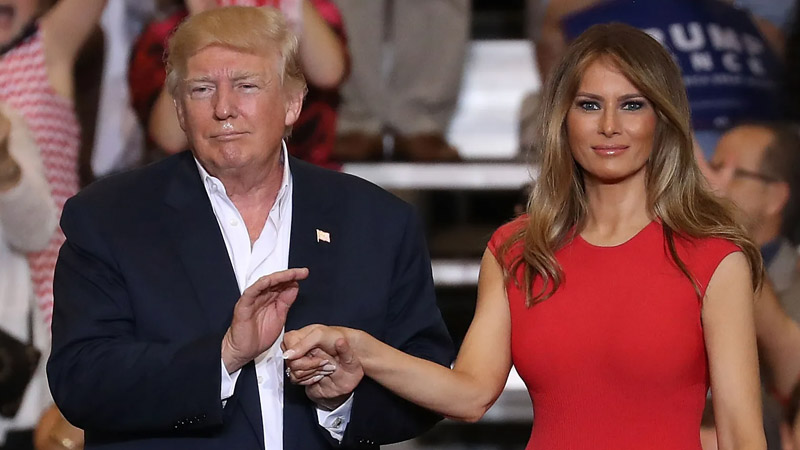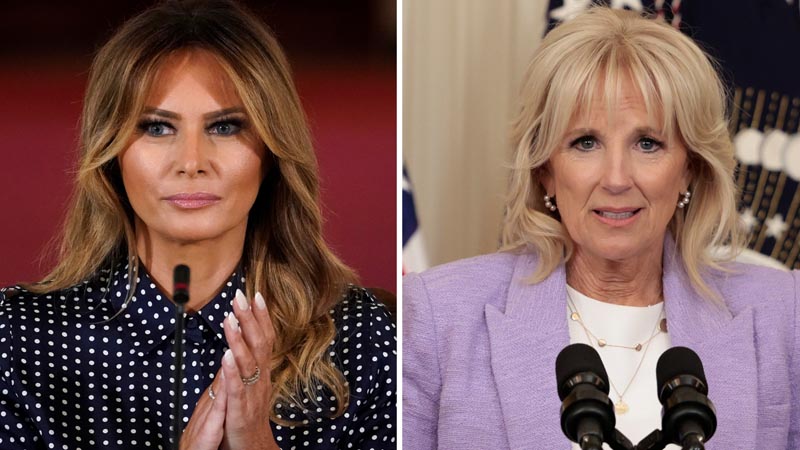How Melania Influences Trump’s Approach to the Hush Money Case Amid Family Tensions and Campaign Ambitions

Joe Raedle / Getty
Among the numerous legal challenges Donald Trump is facing, the hush money case is widely regarded as the least likely to thwart his aspirations for a second term as President. This particular case involves allegations that, just weeks before the 2016 presidential election, Trump altered financial business records to conceal payments made to adult film actress Stormy Daniels.
These payments were allegedly made to prevent Daniels from disclosing a prior affair with Trump, an action that has now led to a major legal battle spearheaded by Manhattan District Attorney Alvin Bragg. Despite the looming legal entanglements, Trump has maintained his innocence and entered a plea of not guilty. With no postponements announced, the trial is scheduled to commence on Monday.
“This is very personal to him,” said Stephanie Grisham, who served under the 45th president as White House press secretary and appeared on CNN’s “Out Front.” “This is an embarrassment to him for with his family and more importantly, with his wife Melania.”
The unfolding scenario has placed Trump’s family, particularly his wife, under considerable stress. Stephanie Grisham, former chief of staff to Melania Trump and a close observer of the dynamics within the Trump family shed light on the intense personal difficulties Melania has faced due to these allegations.
Grisham vividly recalled her time in the White House during the initial breaking news of the Stormy Daniels scandal, highlighting the strain it put on Melania. The situation escalated with subsequent revelations involving Karen McDougal, a former Playboy playmate who also claimed to have had an affair with Trump. According to Grisham, Melania took these revelations seriously and they significantly affected her.
Melania’s response to the scandals was markedly different from past first ladies who faced similar situations. Grisham highlighted an instance where Melania opted to attend the State of the Union address separately from Trump, a deliberate decision to distance herself and not appear publicly supportive in the manner that Hillary Clinton had previously during the Bill Clinton-Monica Lewinsky scandal.
This historic image of the Clintons—Bill, Hillary, and their daughter Chelsea, hand-in-hand, walking to a helicopter after the Lewinsky allegations surfaced—was a poignant reminder of the public facade often maintained in times of personal turmoil. Grisham portrays Melania as a fiercely independent and strong woman, traits that could play a pivotal role in Trump’s upcoming campaign.
With her deep understanding of the personal and public implications of these legal battles, Melania is purportedly advocating strongly for a postponement of the current case. Grisham suggests that Melania’s influence might even extend to persuading Trump to testify in his own defense, a move that could demonstrate his commitment to refuting the charges, particularly given the personal embarrassment they have caused her.
The ongoing situation is evidently a source of great concern and humiliation for Melania, and it casts a long shadow over Trump’s household. Grisham’s insights reveal not only the legal challenges Trump faces but also the profound personal repercussions they have for his family life. As the trial date approaches, the tension within the Trump household underscores the complex interplay of personal relationships and public crises that define American political life.


